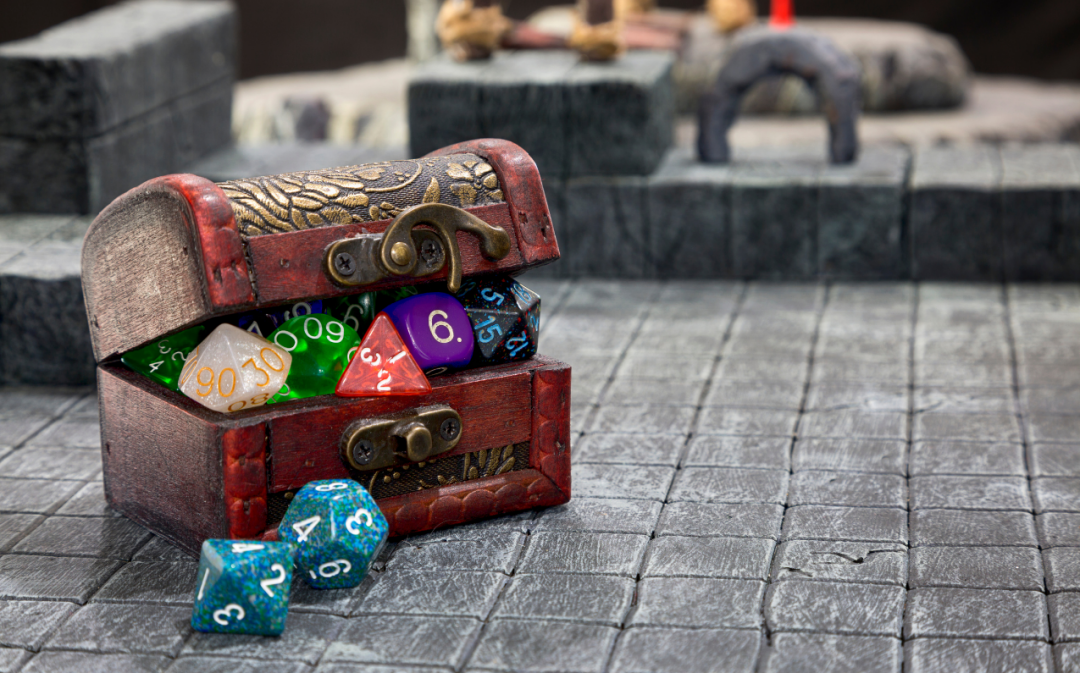
Occult practices are one of the eight entryways for demonic influence identified in Unbound.
For many who are unfamiliar with the occult, it can often be confusing and hard to identify what an occult practice is. Some people will easily identify them for us, while other times it isn’t clear if the person was involved in an occult practice or not.
In the Appendix A of Unbound: A Practical Guide to Deliverance, a questionnaire developed by the late Francis MacNutt asks a variety of questions related to occult practices. Among them is this question: “Have you ever played Dungeons & Dragons?”
Some people believe that role playing games like Dungeons and Dragons involve occult practices or serve as entryways to occult activity. In their eagerness to denounce anything that looks like it might be related to the occult, they can be fearful and create fear in others. Others believe that role playing games like Dungeons and Dragons are harmless and fun. They might become defensive if they were asked about it. How can we, as leaders of an Unbound ministry session, help people from various perspectives to navigate issues like this with wisdom and compassion?
It is important to understand that any occult involvement rests upon a foundation within the person, and the main issue is not just the activity but the foundation supporting it.
Dungeons and Dragons is a role-playing game where young people take on archetypal or mythological roles, strategizing and accomplishing certain tasks according to their role’s strengths and weaknesses, and rolling dice to determine the action of the game. Role-playing games like D&D are a collaborative form of storytelling led by a game master, who sets up the parameters and situations for the storytellers to flesh out.
Dungeons and Dragons is not an inherently occult activity, because the game itself does not have content. The content of a role-playing game is determined by the game master and the players as they play. The game may make use of dark themes, magical elements, or involve the supernatural (like many stories do). If immoral or occult activities (like using tarot cards) were added to a game of D&D, they would likely be introduced by the game master or a player who is involved in the occult.
Instead of focusing on a particular game, movie, or activity, it is important to look at what the person did and how it affected them.
On some occasions, people have told us that they experienced spiritual bondage when they began to identify with dark characters from a role-playing game. Others have had similar experiences when they became obsessed with horror movies, books, or other media with dark themes.
In these sessions, it normal to have the person simply renounce any spirit that came to them when they participated in these activities and renounce their identification with any evil characters. However, it is important to know that the game/book/movie is rarely the foundational entryway. Instead, their participation is part of a larger web of deception that holds them in bondage and needed to be renounced.
We are more interested in how a person gets into bondage than making a comprehensive list of the dos’ and don'ts that are related to the occult. This approach helps others to identify what they need to renounce without causing them to feel condemned or judged.
Here are some common examples of how the enemy might use games and other media to ensnare a person.
If a young person is wounded, lonely and isolated, and prone to escape into their imagination, they may begin to form a spiritual relationship with a character or begin to identify with them. This could lead to invitations being made to spiritual entities which results in oppression.
For some, role play or fantasy becomes part of a person’s reality. Some enjoy fantasy as a means to escape the pain of the real world. They choose to remain in a role or connected to another world, which isolates them and causes confusion.
For others, there is a fascination with evil and power, which draws them into deeper curiosity and involvement with mythologies, spiritual entities, magic, and other occult practices.
At the heart of this topic is the issue of identity, which is a central battleground between the kingdom of God and the kingdom of darkness in our lives, regardless of which games we play.
If a child doesn't have a sense of who they are, they may choose to identify with a role in a way that becomes an opportunity for the enemy to whisper a lie about who they are. If they find an escape from reality or a sense of empowerment within these roles, they may want to go further and begin relating to spirits.
Again, it is not about the game. It is about the enemy’s strategy at work in a person’s life.
A questionnaire like this one should always be the beginning of a conversation, not a reason for us to rush to judgment or condemnation. If a person brings up their experiences, we want to help them understand how it relates to the rest of their story.
First, we want to know what their experience like, and how did they respond to it? Did the person bring it up because they saw it on a list, or were they affected by it? Did anything change in their life after that? Did they make any vows or pronouncements, or invite any spirits? This will help the person specifically identify what they need to renounce. We want to do this without communicating any shame or judgment.
We also want to know about the context. What was going on in their life at the time that they got involved? What was their relationship with their family like? The reason is that the foundation upon which the enemy builds is normally deeper than simply taking part in a game. We want to help them address the foundation for any occult involvement by renouncing it. This could include things like escape, fantasy, rebellion, loneliness, and isolation.
In the context of a loving and non-judgmental interview, people find that they are safe to explore areas of their lives that were shrouded in darkness, or issues that they have never considered. I hope that our approach will help you navigate an Unbound ministry session when the person brings these issues to the interview.
Finally, I want to add a note for parents who may be reading this. I know as a parent myself that you have a lot of concerns about the music, games, and movies that your child engages with. You are right to recognize that you are a gatekeeper, and that society no longer maintains the same moral standards or mechanisms to protect children from harmful media.
As a parent, try to be aware of how much your child may be internalizing the attributes of characters in the stories and games they enjoy. Be aware of the danger of self-identification with characters that do not reflect the goodness of God. Use these moments as teaching opportunities – not to condemn the movie, story or game, but to discuss what is good and evil. Good parenting requires time, communication, and active listening. It involves a balance of age appropriate risk taking and setting limits on your child’s activities.

